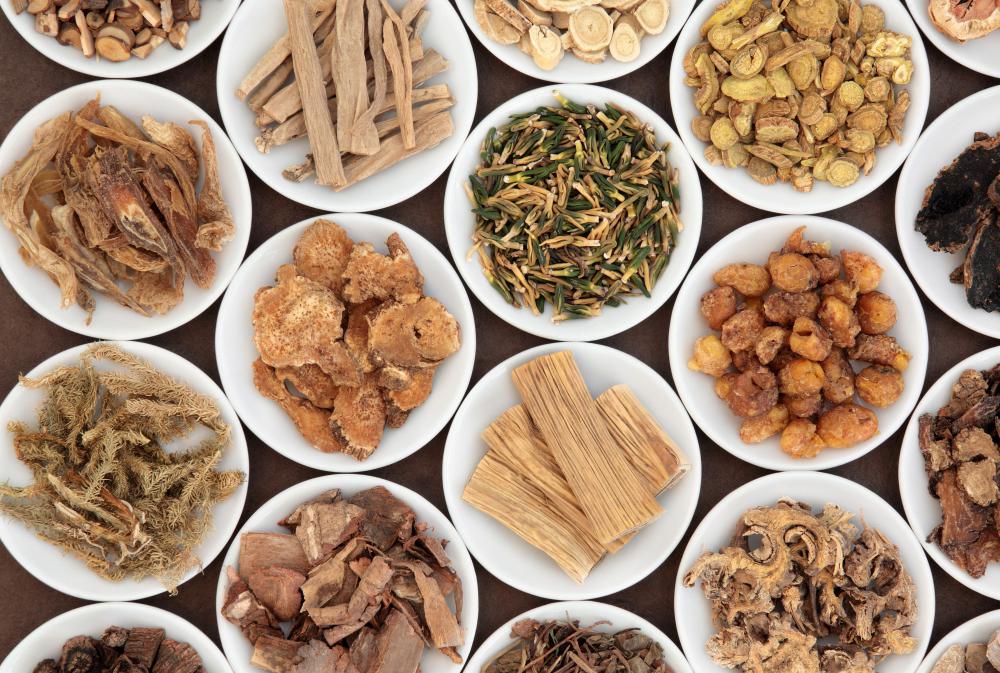At WiseGEEK, we're committed to delivering accurate, trustworthy information. Our expert-authored content is rigorously fact-checked and sourced from credible authorities. Discover how we uphold the highest standards in providing you with reliable knowledge.
What Is Astragalus Membranaceus?
An herb used in traditional Chinese medicine, Astragalus membranaceus is native to eastern Asia. Historically, it has been used as an immune system booster, as a treatment for respiratory tract infections, and as a remedy for heart disease. Studies into its efficacy as a medicine indicate that it may produce benefits in certain conditions, but as of 2011, not enough evidence exists to confirm its effectiveness and safety.
Astragalus membranaceus is also known by the names milk vetch, bei qi and huang qi. Standing up to 36 inches (91 cm) high, the plant has stems with hairy protrusions and leaves in pairs along the stem. The plant is perennial, which means it grows for many years. In herbal medicine, only the root is used, and specifically from plants that are four years of age.

The dried root can be administered to patients in traditional forms like soup or tea, or it may be given as capsules, injections or as drops. The three major medical problems that the root was prescribed for traditionally were immune dysfunction, respiratory infections and heart problems. Most often, the remedy is given in conjunction with other herbs that are thought to be beneficial, such as licorice or ginseng.

Scientific studies of the herb have not conclusively proven that Astragalus membranaceus is a useful medicine. Some studies do indicate, however, that it does have potentially useful biological effects. These include a capability to reduce blood sugar levels and an interaction with the immune system that may help the body fight viral infections like colds, and recover more easily from treatments like radiation that can depress the immune system.
Most of the claims for the health benefits of astragalus membranaceus are not, as of 2011, proven by research studies. The potential medical uses that the herb may be useful for, however, include hepatitis, kidney problems and hayfever. Despite some studies indicating that the herb is useful for improving these conditions, these have not yet been backed up by further research.
As the evidence of the health effects of Astragalus membranaceus is not yet sufficient to make the herb a trusted medicine, not enough evidence is present to definitively say whether the herb is safe to use. This situation is compounded by the fact that the herb generally is mixed with other herbs in Chinese remedies. As well as Astragalus membranaceus, a closely related species, Astragalus mongholicus, is also part of traditional Chinese medicine. Other Astralagus plant species can be dangerous to health.
AS FEATURED ON:
AS FEATURED ON:












Discuss this Article
Post your comments